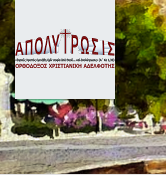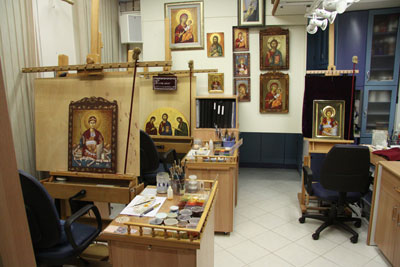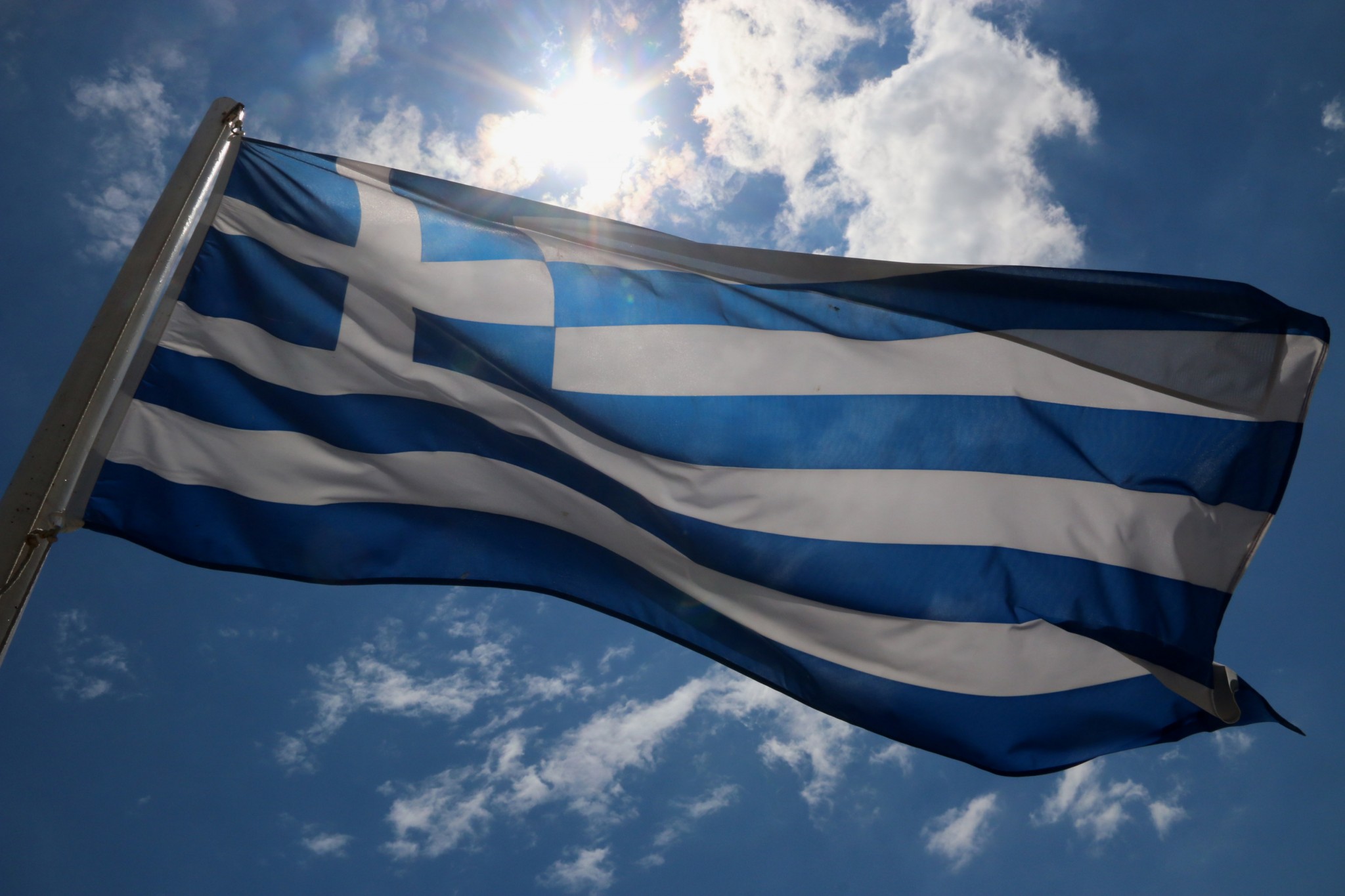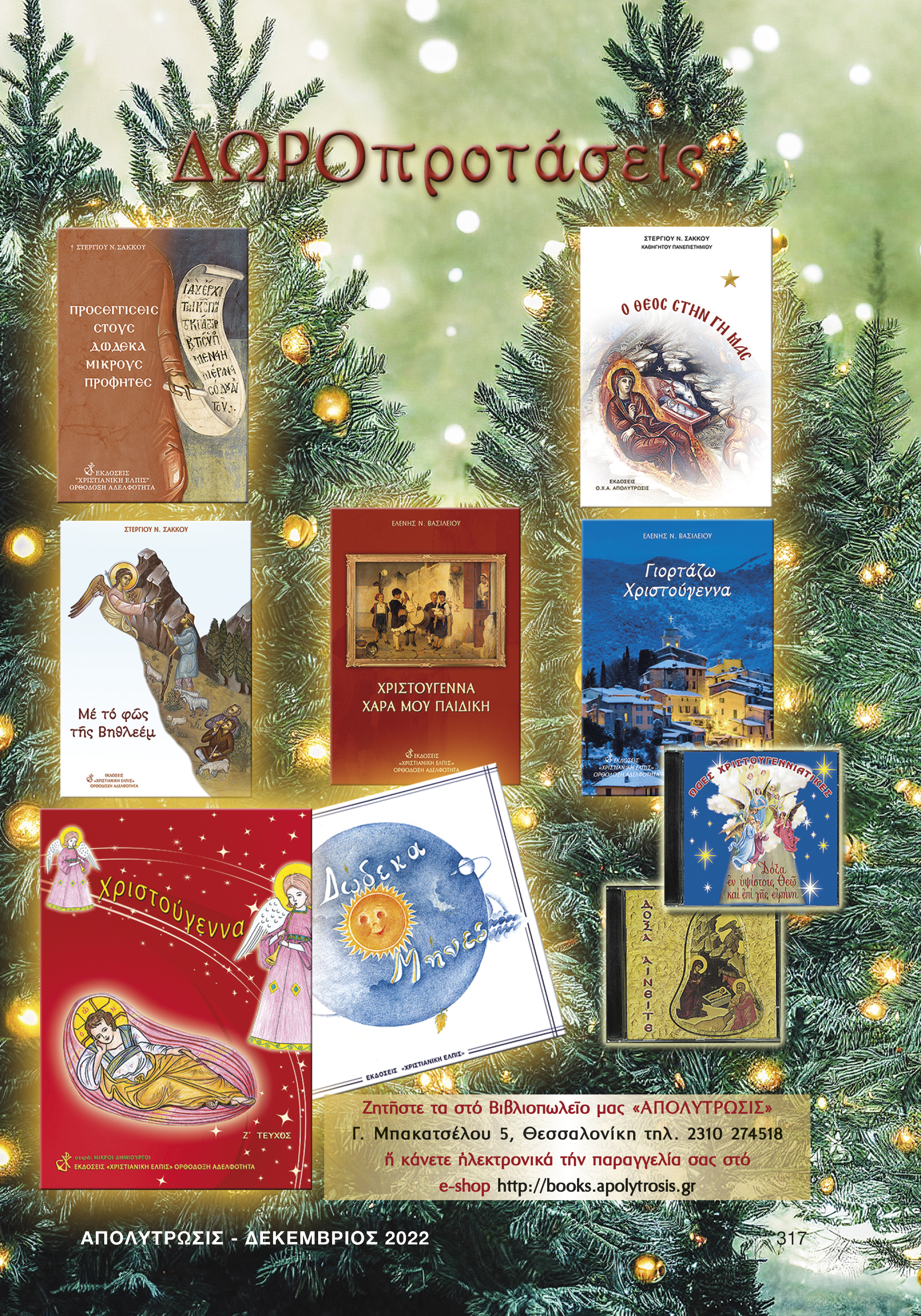 ΑΠΟΛΥΤΡΩΣΙΣ
ΧΡΙΣΤΙΑΝΙΚΗ ΟΡΘΟΔΟΞΗ ΑΔΕΛΦΟΤΗΣ
ΑΠΟΛΥΤΡΩΣΙΣ
ΧΡΙΣΤΙΑΝΙΚΗ ΟΡΘΟΔΟΞΗ ΑΔΕΛΦΟΤΗΣ
Super User
Εἰς μνήμην
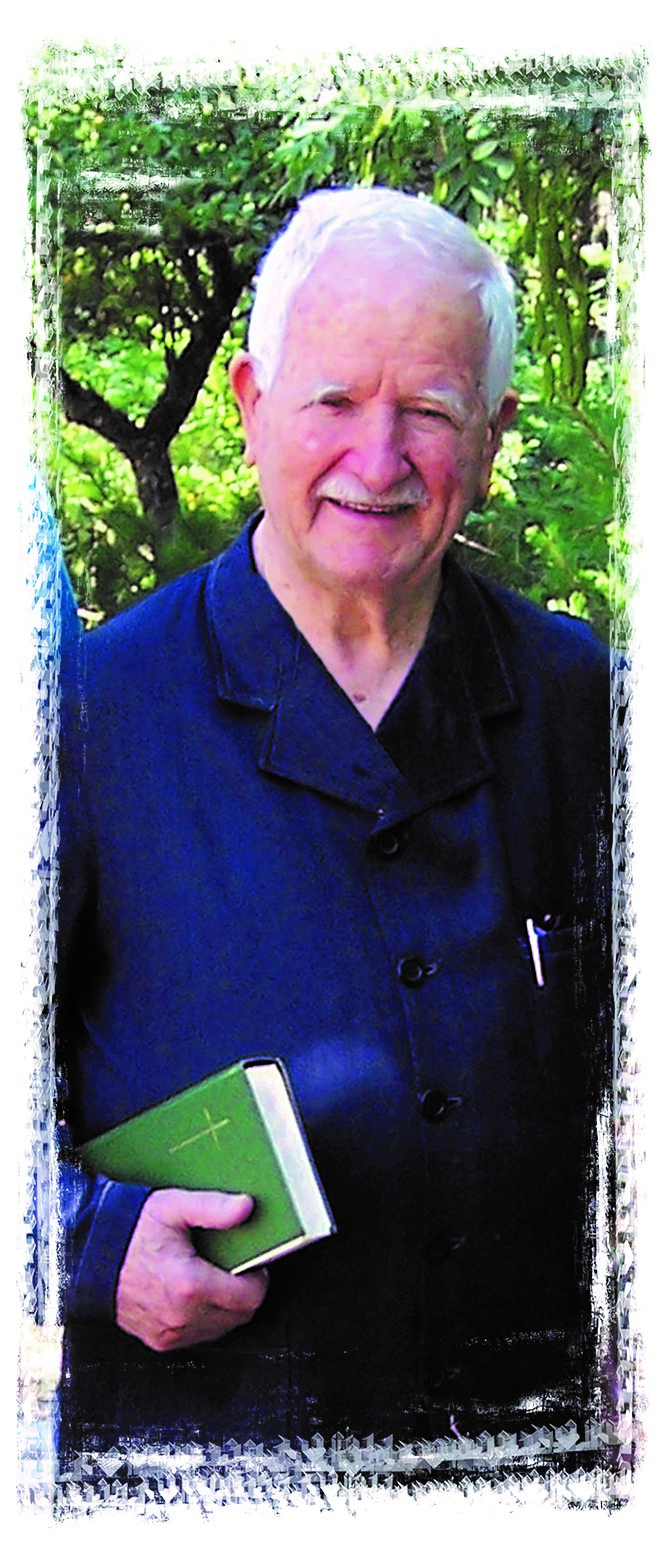
Μπορεῖτε νά παρακολουθήσετε τήν διαδικτυακή ἐκδήλωση πού πραγματοποιήθηκε
εἰς μνήμην τοῦ διδασκάλου τῆς Ἀδελφότητός μας
Στεργίου Σάκκου.
JESUS CALLS HIS FIRST DISCIPLES (Lk 5:1-11)
Translation from the book:
Στεργίου Ν. Σάκκου, Ἑρμηνεία στό κατά Λουκᾶν Εὐαγγέλιο, τόμ. Α΄, ἐκδ. «ΧΡΙΣΤΙΑΝΙΚΗ ΕΛΠΙΣ» ΟΡΘΟΔΟΞΗ ΑΔΕΛΦΟΤΗΤΑ, Θεσ/νίκη 2008, σσ. 207-216. (Stergios N. Sakkos [Read CV], A Commentary on the Gospel according to Luke, vol. A', pp. 207-216)
At the beginning of his public life, Jesus invited the disciples who would follow him and afterwards they would continue his work. The Evangelist Luke, who, as it was said (see comments on 1:3), does not respect the chronological order of events, writes first about certain incidents that took place later. So, at the end of the previous chapter (see 4:31-44) we read about a healing, in the synagogue of Capernaum, of a man who had demons in him, the healing of Peter's mother-in-law from a high fever and other miracles. And then (5:1-11) he writes about the call of the disciples, considering it as the most important event of the first days of Jesus in Capernaum. For this reason, he describes it in detail, while Saint Matthew and Saint Mark omit it in their short narratives (see Mt 4:18-22; Mk 1:16-20).
5:1 And it came to pass, that, as the people pressed upon him to hear the word of God, he stood by the lake of Gennesaret.
One day as Jesus was standing by the Lake of Gennesaret, the people were crowding around him and listening to the word of God.
Jesus did not come from the circle of Pharisees whom the people almost feared. He was simple and accessible to the ordinary people. He spoke clearly and simply. He could be perceived by the crowd, while the High-priests and the Pharisees spoke about Him contemptuously (see Jn 7:48-49). The religious leadership of the Jews and those who had high social positions, being poisoned by their selfishness and self-sufficiency, did not feel the need to hear God’s word. For this reason, Jesus preached on the shore of Capernaum - this was probably the market of the city - where a lot of fishermen and other simple people, the chosen remnant of God (cf. 1 Cor 1:26-28), were gathered. They were all crowded, as the verb «ἐπικεῖσθαι» «pressed upon him» states, in their attempt to approach Jesus and hear his teaching.
Lake Gennesaret took its name from the adjacent homonymous plain. The same lake is mentioned in the book of Num 34:11 with the name «Henereth (kinyra)», apparently because of its shape, which looked like the musical instrument kinyra, the well-known harp. Because of its great size, the Jews called Gennesaret the «sea». So, in the Gospels we find it as the «Sea of Galilee» (Mt 4:18; 15:29; Mk 1:16; Jn 6:1) because it was in the area of Galilee (Jn 6:1; 21:1), or the «Sea of Tiberias» because the city of Tiberias was built at its shore in honour of the Emperor Tiberius. In contrast to the other three evangelists, Luke describes it as a lake, because he is addressed to believers who were not from Palestine and did not know the local use of its name.
5:2 And saw two ships standing by the lake: but the fishermen were gone out of them, and were washing their nets.
He saw at the water’s edge two boats, left there by the fishermen, who were washing their nets.
When the crowds surrounded Jesus, there were two fishing boats nearby. These were small boats that were used in professional fishing. They were about 8 meters long and 2 meters wide and could carry a weight of about one ton.
In this lake there was a huge quantity of diverse fish. The fish, as we can see from its frequent reference in the Gospels (Mt 14:15-21; 15:32-39; 17:24-27; 6:35-44; 8:1-10), was the basic diet of Hebrews. So, it was natural for the inhabitants of the towns and villages near the lake to occupy themselves with fishing. The fishermen of the two boats had come ashore and after the fishing that had preceded during the night (see verse 5), they washed and mended their nets. Therefore, it was morning or at least before noon. Fishing was primarily done with nets. There were a variety of nets. The gospel narratives refer to the «ἀμφίβληστρον» (see Mt 4:18; Mk 1:16), the «charm» (Mt 13:47) and the long nets like the contemporary ones, with corks on the top and weights on the bottom. This last type of net, as we can see by the way they fished (see verse 6), was used by the fishermen of our passage.
5:3 And he entered into one of the ships, which was Simon's, and prayed him that he would thrust out a little from the land. And he sat down, and taught the people out of the ships.
He got into one of the boats, the one belonging to Simon, and asked him to put out a little from shore. Then he sat down and taught the people from the boat.
Jesus asked for Peter's consent to use one of the two boats as a teaching platform. He made a polite request to him, knowing that he was the owner. This detail shows how much the Lord respected the freedom of any man and the right for property. The verbs «ἀνάγειν» and «κατάγειν» as nautical terms mean respectively «I’m going out into the sea» and «I’m bringing the ship to the shore». The verb «ἐπανάγειν» means «I'm going back to the sea». Jesus asked Peter to remove the ship only a few meters from the shore, so that the water would become a natural barrier between him and the crowd, who were gathered around him. In this way, everyone could see and hear him better.
Peter willingly made his ship available for the Teacher to preach. He did not hesitate because of the fatigue of the whole night or his sorrow for the unsuccessful fishing. He himself longed to hear God’s word from Jesus. About the phrase «he sat down, and taught the people» see comments on 4:20.
5:4 Now when he had left speaking, he said unto Simon, launch out into the deep, and let down your nets for a draught.
When he had finished speaking, he said to Simon, «Put out into deep water, and let down the nets for a catch.»
The Lord did not want to leave without paying the owner of the ship, who offered him this unusual pulpit. At the end of the speech, he urged him to bring the ship again to the depths of the lake and with the other fishermen to let the nets down for fishing. He had, after all, his plan; through fishing he could «catch» disciples, according to the pun of Saint Cyril of Alexandria. He wanted to gain the absolute trust of his first disciples and attract them by showing his divine power.
5:5 And Simon answering said unto him, Master, we have toiled all the night, and have taken nothing: nevertheless at thy word I will let down the net.
Simon answered, «Master, we’ve worked hard all night and haven’t caught anything. But because you say so, I will let down the nets.»
The Lord was not a fisherman. As a man, he was unskilled at this job. His order would certainly seem absurd to Peter, who knew that this time of the day was completely inappropriate for fishing. And yet, excited by the presence and preaching of Jesus, the experienced fisherman obeys to this curious exhortation. He calls him «ἐπιστάτα», which means «teacher.» Luke uses this word instead of the Hebrew «rabbi», which is preferred by the other evangelists. It is not known if Peter had already watched Jesus doing other miracles. It is certain that he knew him since his brother Andreas had introduced him (see Jn 1:42-43). Peter's direct response to the Lord's command reminds us the willing obedience of the Virgin Mary to the angel's message (Lk 1:38) and it is a great lesson for the believers of all ages. His decisive answer, «because you say so, I will let down the nets», is often repeated by those who submit to the Lord's will, even when it seems unreasonable, and trust Him.
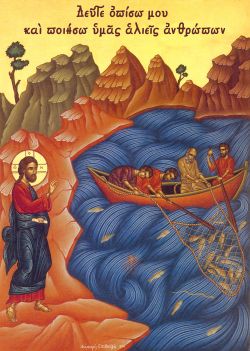 5:6 And when they had this done, they inclosed a great multitude of fishes: and their net brake.
5:6 And when they had this done, they inclosed a great multitude of fishes: and their net brake.
When they had done so, they caught such a large number of fish that their nets began to break.
There were so many fish gathered, that the net «διερρήγνυτο». This verbal type, states that the net was about to break. Jesus, as an almighty God, dominates everything. His will and the power of his word attained this miraculous fishing, which cannot be rationally explained. There is also a miraculous fishing in Jn 21:3-14. But this is not the same incident. There, the resurrected Lord appeared «in another form» (Mk 16:12) and repeated the same miracle as a proof of his identity and as a sign of recognition by his disciples.
5:7 And they beckoned unto their partners, which were in the other ship, that they should come and help them. And they came, and filled both the ships, so that they began to sink.
So they signaled their partners in the other boat to come and help them, and they came and filled both boats so full that they began to sink.
The word «κατένευσαν» is a maritime term, which in Modern Greek means «signal». When the boats were at a great distance from each other, the sailors could communicate by waving their hands or by a piece of cloth or some other visible signal. Peter's boat was out farther in the lake, while his partners’, the sons of Zebedee’s boat, was on the shore. For this reason, they could only communicate with signals.
Since both boats were filled, it seems that there were too many fish and the boats were relatively small. The type of the phrase, «ὥστε βυθίζεσθαι», does not mean that the boats started sinking, but because of the weight were about to sink. Their displacement «εκτόπισμα», in other words, crossed the line of safety. Some foreign scholars ignored the precise interpretation of these two words, so they faced the following speculations: How did the disciples finally catch the fish, since the nets were destroyed by the weight? How did they save the boats from being sank? The more precise meaning is that they «were about to sink» and this answers the above questions.
5:8 When Simon Peter saw it, he fell down at Jesus' knees, saying, «Depart from me; for I am a sinful man, O Lord.»
When Simon Peter saw this, he fell at Jesus’ knees and said, «Go away from me, Lord; I am a sinful man!»
The reference to the double name Simon Peter helps us to understand that the evangelist has in his mind the first contact of Peter with Jesus, when the Lord said to him; « you will be called Cephas, which means, Peter», which John records in Jn 1:43. There is, therefore, no disagreement between John and the other three evangelists over the election of the disciples, as some have claimed. John describes the first acquaintance; the others presuppose it and mention the call of the first disciples and later the final chosen ones for the missionary group, that is, the election of the twelve and their mission (see Mt 10:1-4; Mk 3:13-19; Lk 6:13-16).
The miraculous fishing revealed the divine power of Jesus. In the face of this revelation, Peter is shocked. He contrasts his own weakness and sinfulness to his majesty and sanctity and spontaneously calls him «Lord». Peter realizes how small and unworthy he is to host Jesus on his boat. Kneeling with devoutness, he exclaims; «Go away from me, Lord; I am a sinful man!» His spontaneity does not allow him to think how unreasonable his request is, since Jesus should fall into the sea in order to get out of his boat. It is also a detail that proves this is a true narrative and not a fiction.
5:9 For he was astonished, and all that were with him, at the draught of the fish which they had taken.
For he and all his companions were astonished at the catch of fish they had taken,
The miraculous fishing left the fishermen dazzled, not of course for the unexpected wealth that it would probably bring, but as a supernatural event, which showed the presence of an omnipotent person.
5:10 And so was also James, and John, the sons of Zebedee, which were partners with Simon. And Jesus said unto Simon, «Fear not; from henceforth thou shalt catch men.»
and so were James and John, the sons of Zebedee, Simon’s partners. Then Jesus said to Simon, «Don’t be afraid; from now on you will fish for people.»
The professional fishermen of the lake usually formed guilds, small fishing companies. Their members were called «shareholders» (see vs. 7) or «κοινωνοί». They participated in the company offering their boats, nets and labor, and «shared» the profits. The two pairs of brothers: Petros-Andreas, James-John had created such a company.
The Evangelist Luke mentions the names of the three of the four partners, Peter, James and John. It omits Peter's brother, Andrew, who is mentioned by the other two evangelists (see Mt 4:18; Mk 1:16). His purpose, obviously, was to inform his recipients how the three top disciples, whom Jesus took with him at key moments of his earthly life, were invited. These were in the resurrection of the daughter of Jairus (Mk 5:37; Lk 8:51), in Transfiguration (Mt 17:1; Mk 9:2; Lk 9:28), in Gethsemane (Mt 26:37; Mk 14:33). The Lord urges Peter «Don’t be afraid» and reassures him, as in the past the angel Gabriel said to Zacharias (see Lk 1:13) and to the Virgin Mary (see Lk 1:30). The presence of God in Sinai (cf. Ex 19:16-18; 20:18) and more generally in the history of Israel, was accompanied by phenomena that caused the terror of the Israelis. In the years of the New Testament, God came to banish fear and make people shareholders in the happiness of his kingdom.
The verb «ζωγρῶ» refers to the captivity of living beings. Peter is called to change not his profession but the object of his fishing. Instead of catching fish in his nets and lead them to death, he will capture people from the sea of the world, where they are spiritually dead, and lead them to eternal life. The superiority of his imminent mission is obvious.
5:11 And when they had brought their ships to land, they forsook all, and followed him.
So they pulled their boats up on shore, left everything and followed him.
The blessed fishermen were impressed by the rich catch, but they did not want to profit from it economically. The desire for profit did not stand as an obstacle to Jesus’ call; «left everything» and they followed him. They were called to a mission that demanded self-denial and absolute devotion. That day Jesus broke up a fishing company and gained the first shareholders of his own divine «Company».
In the election of the students there is an element which is strongly at contrast to the tactics used by the leaders of various movements. These seek out their fans among the unemployed and unoccupied. The Lord called his colleagues while they were working (cf. Ex 3:1-4; 1 Kings 19:19-21). In this way, he showed how he honors work. Moreover, he did not consider it disrespectful to be described as a «τέκτων» (see Mt 13:55; Mk 6:3) i.e. a craftsman (carpenter, construction worker, blacksmith).
The evangelists Matthew and Mark note with emphasis that the four fishermen «straightway» left everything, in order to follow Jesus (see Mt 4:20.22; Mk 1:18.20). St. John the Chrysostom praises their obedience and urges: «This is the obedience Christ is asking from us», that is, to do the will of the Lord without the slightest delay.
Very often we develop a great activity for earthly things, while we constantly postpone everything that has to do with our spiritual life and the case of God. This delay is a well-made trap of evil. It is written, in this connection, by the former bishop of Florina Augustine: «All, dear ones, let us fear the demon of delay. In every good decision about the glory of God or for the benefit of our neighbor, he comes and whispers to us; “Tomorrow”. Oh, the cunning creature! He promises the uncertain future and seizes the present... Let us not forget the wisdom of a saying that the road to hell is paved with numerous “wills” and kind promises which will never be realized.»
In all ages the Lord appeals to everyone the invitation to follow him; to abandon the life of sin and to walk faithfully on his own footprints (see 1 Pet 2:21; cf. Col 3:8-10). At the same time, every Christian is called to be a missionary in his environment. The motto of the first Christians was: «Εις προς ένα προς ΙΧΘΥΝ», «Each one approach another one to bring him to Jesus Christ God’s Son». We know that the Christian merchants who traveled to the countries of the Mediterranean, contributed a lot to the spread of the Gospel. The Church of Rome, for example, was founded by disciples of the Apostle Paul who had moved there, before the apostle arrived. «The person who has no missionary desires, is a false Christian,» writes the bishop Augustine categorically.
However, in addition to the general call, the Lord also directs special calls to some persons in order to take up the special mission to continue the work of the Apostles. In every era, it is necessary to exist the tireless fishermen, the teachers of the gospel, those who will sacrifice their careers. They will cut off all human emotional ties and throw themselves with a spirit of sacrifice into the missionary work inside or outside their homeland. The Lord, emphasizing this need, urges the faithful; «Pray you therefore the Lord of the harvest, that he will send forth laborers into his harvest» (Mt 9:38).
The miraculous fishing can be paralleled with the work of the Church. The rich catch was a type of the rich fishing of men, a foretelling of the large crowd of those who were to be caught by the nets of the Apostles. By the power and authority of the Lord, with the patience and insistence that characterizes the fishermen, the apostles really spread the nets of the gospel and arrested a lot of men, whom led to Christ and salvation.
Copyright © 2021 by Orthodox Christian Association «ΧΡΙΣΤΙΑΝΙΚΗ ΕΛΠΙΣ» ΟΡΘΟΔΟΞΗ ΑΔΕΛΦΟΤΗΤΑ. Used by permission. All rights reserved.
CHRIST IS INNOCENT AND SINLESS
Translation from the book:
Στεργίου Ν. Σάκκου, Ὁ ληστής θεολόγος καί δάσκαλος,
ἐκδ. «ΧΡΙΣΤΙΑΝΙΚΗ ΕΛΠΙΣ» ΟΡΘΟΔΟΞΗ ΑΔΕΛΦΟΤΗΤΑ, Θεσ/νίκη 2009, σσ. 38-42
(Stergios N. Sakkos [Read CV], The Criminal-Robber: Theologian and Teacher, pp. 38-42)
A Christology Lesson
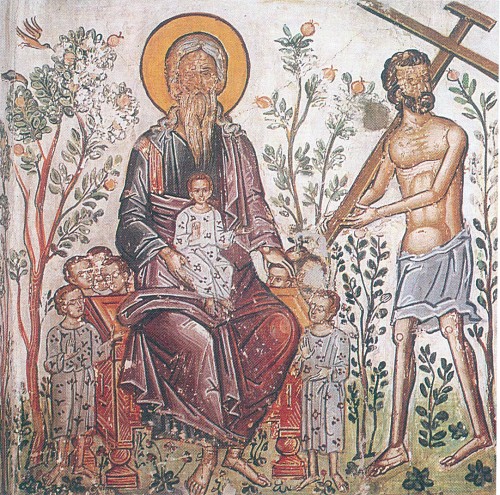 The criminal-robber, as if he were a theologian, declares that Jesus Christ is sinless. This is an old and well-known issue which is proved by the testimonies of the Scriptures.
The criminal-robber, as if he were a theologian, declares that Jesus Christ is sinless. This is an old and well-known issue which is proved by the testimonies of the Scriptures.
• About 750 years BC the prophet Isaiah stated: “because he had done no violence, neither was any deceit in his mouth” (53:9). “Although he had done no violence and had said nothing deceptive”.
• The question Jesus himself asked remains unanswered: “Which of you convinceth me of sin?” (Jn 8:46). “Who among you can show I’m guilty of sin?” Through the centuries many people tried to criticize Christ, but they couldn’t find any fault. Jesus remains faultless, flawless, the only one who is sinless (pure).
• Pilate himself confessed so, after he had interrogated him: “I am innocent of the blood of this just person” (Mt 27:24)
• Pilate’ wife testified that after her dream: “Have thou nothing to do with that just man: for I have suffered many things this day in a dream because of him.” (Mt 27:19) “Leave that righteous man alone. I’ve suffered much today in a dream because of him.”
• It is, also, verified by the Pharisees and Sadducees who stood silent in surprise when those sent to arrest Jesus, admitted: “Never man spake like this man” (Jn 7:46). “No man ever spoke like this!”
• And there it is! The last minute, a criminal on the cross, a robber, declared that: “but this man hath done nothing amiss” (Lk 23:41). “But this man has done nothing wrong.” St Cyril of Jerusalem says that there is “another witness of the fact that Jesus is sinless, ‘the first criminal in paradise’”.
The man who spent his whole life committing offences and crimes perceived that Jesus did not commit any offence or anything illegal. So, he publicly and without any hesitations declared that Christ was innocent. He was not affected by the Pharisees and by those who condemned Him. It is as if we read texts from Isaiah, Baruch, Habakkuk “His glory covered the heavens, and the earth was full of his praise.” (Hab 3:3). The criminal’s historic public confession is another testimony of the fact that our beloved Jesus is sinless. When we are aware of that, we appreciate the greatest gift of His Passion for us. The One who is sinless suffers for me, the sinner.
Along with the admission that Christ is sinless, the criminal, also, acknowledged His divinity and declared in his prayer that He was the Lord. So, he asserted that the man who was hanging on the cross next to him was not a common criminal. He was the God Himself who had incarnated and come among men. The advanced Christology of this criminal–theologian is the same as St Paul’s preaching: “that God was in Christ, reconciling the world unto himself” (2 Cor 5:19).
The apostle Thomas, also, confessed that Jesus Christ was his Lord and God (Jo 20:28), but he had already lived for three years in the company of the Teacher and the other disciples and when he said so, he could see the Lord resurrected in front of him. The criminal discerned Jesus’ divinity before the Resurrection and it was not in a moment that the divine power was revealed. He watched Jesus at his most hard time: He was betrayed by His disciple, abandoned by His friends, reproached and condemned by those in power and He was already on the cross. He watched Him dying but he still believed that He was the Lord and He had a Kingdom. He believed that the cross and death did not put an end but inaugurated His Kingdom.
In the Holy Scriptures there are many cases of people whose faith makes them stand out. The faith of Abraham, Moses, Daniel and others in the Old Testament is impressive. They proved their faith to God. However, the case of this criminal is unique, one and only. We cannot deny that since the world was created no one else revealed this kind of faith.
I kneel in front of this criminal’s cross as well. I admire him and thank him humbly, because he offers a valuable confession for our modern times. Atheist writers publish blasphemous articles and books. There are also, films based on those books that try to offend our innocent and sinless Lord. Today we need that criminal’s public confession. We need to hear him declaring the undeniable truth that Jesus is the sinless God!
Copyright © 2021 by Orthodox Christian Association «ΧΡΙΣΤΙΑΝΙΚΗ ΕΛΠΙΣ» ΟΡΘΟΔΟΞΗ ΑΔΕΛΦΟΤΗΤΑ. Used by permission. All rights reserved.
Ἀνάσταση: Ὁ θρίαμβος τοῦ φωτός
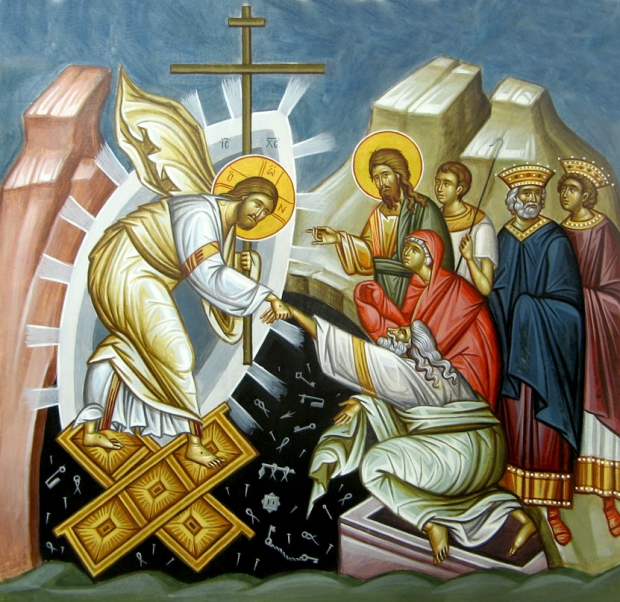 Σέ μιά ἐποχή πού τά κυρίαρχα αἰσθήματα εἶναι ὁ ἀτέρμονος φόβος γιά τήν Covid-19, ἡ ἀπογοήτευση, ἡ σύγχυση καί ὁ πανικός, ἀκούγεται καί πάλι μεγαλόφωνα καί λαμπρά ὁ ἐπινίκιος παιάνας τῆς ἀναστάσεως:
Σέ μιά ἐποχή πού τά κυρίαρχα αἰσθήματα εἶναι ὁ ἀτέρμονος φόβος γιά τήν Covid-19, ἡ ἀπογοήτευση, ἡ σύγχυση καί ὁ πανικός, ἀκούγεται καί πάλι μεγαλόφωνα καί λαμπρά ὁ ἐπινίκιος παιάνας τῆς ἀναστάσεως:
«Χριστὸς ἀνέστη ἐκ νεκρῶν, θανάτῳ θάνατον πατήσας, καὶ τοῖς ἐν τοῖς μνήμασι, ζωὴν χαρισάμενος».
Εἶναι ὁ ὡραιότερος καί πιό ἐλπιδοφόρος ὕμνος τῆς Ἐκκλησίας μας, πού διαλαλεῖ, ἐν συντομίᾳ μέν ἀλλά μέ δύναμη, ὅτι τόσο ὁ πνευματικός ὅσο καί ὁ βιολογικός θάνατος τῶν ἀνθρώπων νικήθηκε κατά κράτος μέ τό θάνατο καί τήν ἀνάσταση τοῦ Χριστοῦ. Ἕνας ὕμνος πού προκαλεῖ αἰσθήματα αἰσιοδοξίας, ἀγάπης καί εἰρήνης στήν ταραγμένη ψυχή τοῦ ἁμαρτωλοῦ ἀνθρώπου, καί εἶναι ἰδιαίτερα ἐπίκαιρος στά χρόνια αὐτά τῆς πανδημίας.
Ἡ ἀνάσταση τοῦ Χριστοῦ δέν εἶναι ἁπλά ἕνα βέβαιο ἱστορικό γεγονός τοῦ παρελθόντος, ἀλλά ἕνα γεγονός πού ἔχει προεκτάσεις σέ ὅλες τίς διαστάσεις τοῦ χρόνου. Ἐκτείνεται καί στό παρελθόν καί στό παρόν καί στό μέλλον.
Ὑπάρχουν δεκάδες προφητεῖες στήν Παλαιά Διαθήκη πού προαναγγέλλουν τήν ἀνάσταση τοῦ Χριστοῦ. Ἡ πρώτη μάλιστα, τό «Πρωτευαγγέλιο», ὅπως χαρακτηρίζεται, λέχθηκε ἤδη στήν Ἐδέμ ἀμέσως μετά τήν πτώση μας. Εἶναι ἡ ὑπόσχεση τοῦ Θεοῦ στούς πρωτοπλάστους πού παγιδεύτηκαν στή φθορά, ὅτι θά ἀποστείλει κάποτε στήν ἀνθρωπότητα λυτρωτή καί σωτήρα.
Ἡ δύναμη τῆς προφητείας, ὅπως γράφει ὁ διαπρύσιος κήρυκας τῆς ἀναστάσεως Στέργιος Σάκκος στό βιβλίο του «Ἀληθῶς ἀνέστη», «εἶναι ἀκατάλυτη. Γι' αὐτό καί οἱ ἀπόστολοι, οἱ πρῶτοι μάρτυρες τῆς ἀναστάσεως, χρησιμοποιοῦν τήν προφητεία γιά νά ἐνισχύσουν τή μαρτυρία πού ὡς αὐτόπτες καταθέτουν» (σ. 152).
Ἐπίσης οἱ μαρτυρίες γιά τήν ἀνάσταση τοῦ Χριστοῦ εἶναι τόσες καί τέτοιες πού δέν ἐπιδέχονται ἀμφισβήτηση. Στό συμπέρασμα αὐτό καταλήγει ἀναπόδραστα κάθε ἀπροκατάληπτος ἐρευνητής τῆς ἱστορικῆς ἀξιοπιστίας τους. Καί μάλιστα μπορῶ νά καταθέσω στό σημεῖο αὐτό ἐν εἴδει ἐξομολογήσεως ὅτι προσωπικά πίστεψα στό βέβαιο τῆς ἀναστάσεως στηριγμένος: α΄) στίς ὁμιλίες τοῦ ἀειμνήστου διδασκάλου μου Σ. Σάκκου περί τῆς ἱστορικότητος τῆς ἀναστάσεως, πού περιλήφθηκαν καί στό προαναφερθέν βιβλίο, καί β΄) στή μελέτη ὅσων, πολλῶν, ὑλιστικῶν καί ἀθεϊστικῶν βιβλίων διάβασα. Φαίνεται ἴσως περίεργο τό τελευταῖο, ἀλλά δέν εἶναι. Διότι ἐνῶ οἱ ὁμιλίες τοῦ ἀειμνήστου καθηγητοῦ εἶναι σαφεῖς καί τεκμηριωμένες, στά ἔργα τῶν ἀρνητῶν φαίνεται ξεκάθαρα τόσο ἡ ἀντιφατικότητα τῶν ἐπιχειρημάτων μεταξύ τῶν συγγραφέων, ὅσο, καί κυρίως, ἡ προκατάληψη καί ἡ μισαλλοδοξία τους. Ἡ σύγκριση ἦταν καταλυτική.
Ἡ ἀνάσταση νοηματοδοτεῖ τή βιοτή μας, δίνει περίσσεια χαρά καί μᾶς στηρίζει ἀσάλευτα στίς ποικίλες δοκιμασίες πού ἀντιμετωπίζουμε. Ἀρκεῖ τό ἱστορικό γεγονός τῆς ἀναστάσεως νά γίνει ζωή μας καί νά τό βιώνουμε καθημερινά, ὅπως ἀκριβῶς τό ζοῦσε ὁ ἅγιος Σεραφείμ τοῦ Σάρωφ. Θυμηθεῖτε τί ἔκανε ὁ μεγάλος αὐτός ἅγιος: Χαιρετοῦσε τούς πάντες κάθε μέρα λέγοντας: «Χριστός ἀνέστη, χαρά μου!».
Ἡ ἀνάσταση μᾶς δίνει ἔμπνευση, ἐλπίδα καί ἐμπιστοσύνη στήν πρόνοια καί στήν ἀγάπη τοῦ Θεοῦ. Ἡ ἀνάσταση διώχνει τό φόβο τοῦ ἀγνώστου καί τήν ἀγωνία τῶν πονηρῶν σχεδίων τῶν σκοτεινῶν δυνά-μεων. Δίνει διέξοδο στά ἀδιέξοδα τῆς ζωῆς. Δίχως τήν ἀνάσταση τοῦ Χριστοῦ ἡ πίστη μας εἶναι μάταιη καί ἐμεῖς ἀπαρηγόρητοι. Τό λέει ξεκάθαρα ὁ ἀπόστολος Παῦλος: «Εἰ δὲ Χριστὸς οὐκ ἐγήγερται, κενὸν ἄρα τὸ κήρυγμα ἡμῶν, κενὴ δὲ καὶ ἡ πίστις ὑμῶν» (Α΄ Κο 15,14).
Ἡ ἀνάσταση εἶναι ἡ λαμπρότερη καί πιό χαρμόσυνη ἑορτή τῆς Ὀρθοδόξου Ἐκκλησίας μας! Τό ἄδυτο φῶς της λούζει ὅλα τά μήκη κατά πλάτη τῆς γῆς, στέλνοντας παντοῦ ἠχηρό μήνυμα νίκης. Ναί, ὁ σκοτεινός ἅδης καταργήθηκε! Τώρα πιά θριαμβεύει καί θά θριαμβεύει γιά πάντα τό φῶς τοῦ ἀναστάντος Κυρίου. «Νῦν πάντα πεπλήρωται φωτός, οὐρανός τε καὶ γῆ καὶ τὰ καταχθόνια» (τροπάριο Γ΄ Ὠδῆς κανόνος τῆς Ἀναστάσεως).
Χριστός ἀνέστη!
π. Μιχαήλ Κόνιας
THE DEATH OF ST. JOHN THE BAPTIST (Mt 14:1-12)
Translation from the Book
Ὁ Θεός στήν Καινή Διαθήκη, Βοήθημα Κατωτέρου Κατηχητικοῦ Β΄,
ἐκδ. «Χριστιανική Ἐλπίς» Ὀρθόδοξη Ἀδελφότητα, Θεσσαλονίκη 2015, σσ. 102-107
Do you know who is the greatest man of all ages? Among women, it is Virgin Mary the Mother of God. Among men it is Saint John the Baptist. He is so great that Christ himself praised him! He is the greatest prophet, the one who pointed to Christ with his hand and was worthy of baptizing Him in the Jordan River. He is the greatest hermit, having lived for many years in the desert with strict fasting and prayer. He had such an ascetic life that he is presented as an angel in the icons.
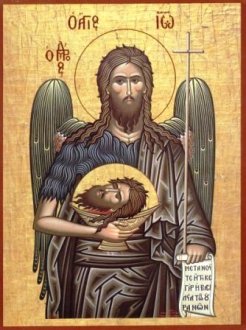 This great man lost his life - not just died but he had a horrible martyrdom - because of a dance. You all know Herod, the king, who slaughtered the infants of Bethlehem, because he feared the newborn Jesus. This Herod had a son who, after his father’s death, became a King and was called Herod the tetrarch.
This great man lost his life - not just died but he had a horrible martyrdom - because of a dance. You all know Herod, the king, who slaughtered the infants of Bethlehem, because he feared the newborn Jesus. This Herod had a son who, after his father’s death, became a King and was called Herod the tetrarch.
The new king was not at all a good example for his people. His life was covered in sin and immorality. He had even taken his brother’s wife, named Herodias. This was too immoral and illegal! But no one dared to speak to the king about this dishonesty. Everyone wanted to be on good terms with him. All? Only one dared to raise his voice without fear. And this was John the Baptist. "King," he told him, "it is not lawful for you to have her!"
And what did the king do? Did he realize his mistake? Did he regret it? No! Instead, he sent soldiers to arrest John and threw him into a dark prison. He would also wish to kill him, but he was afraid that the people who loved John, might revolt against him. So, in the prison of Machairous, the most courageous, holy person was rotting away.
But even from prison John did not stop criticizing the immoral Herod: "King! You are not allowed to do what you do". Herodias, his illegitimate wife, however, was disturbed by John’s criticism more than Herod himself. She could not bear to hear the voice of John the Baptist. She wanted to get him out of the way. How dare he speak such words about the royal couple! So, she was looking for an opportunity to get rid of him and the opportunity soon appeared.
On the day Herod had his birthday, he invited all the officials of the area for a feast. So, when everyone had started getting drunk, they were left speechless by an impressive spectacle: A young girl, Salome, showed up. She was the daughter of Herodias. She was provocatively dressed, loaded with jewelry and excessive make-up. But, she did not go to give wishes to King Herod. Instead, she started dancing in a very sinful way.
But the half-drunk Herod, instead of being ashamed, was proud of her. As soon as the dance was over, blinded by drunkenness, he called her close to him and said: "Ask me what you wish! I will give you up to half of my kingdom!".
What should Salome ask for? She ran and asked her mother, the wicked Herodias. Here was the opportunity she was waiting for! There was no need for her to think much about it. She advised her daughter “You will ask for John's head on a platter”! Salome without wasting a moment ran into the dining hall and, while the food was being served to the guests, she asked for John's head on a platter!
Did the king hear well? Did she ask for John's head? Yes! Herod, as he had sworn in front of his guests that he would give Salome whatever she would ask for, gave the order. Ηe sent his soldier to behead John in the prison. Since then, king Herod had not been able to calm down. Saint John was no longer alive but his name created remorse and fear to the King. He feared that one day he would be resurrected and avenge his death.
In Orthodox Church there is a period called "Triodion". During this period, the Church invites us to prepare ourselves with prayer and fasting to welcome the great days of the Passion and the Resurrection of our Lord Jesus Christ. On the contrary, what do many people do these days? They go to parties and feasts. Various clubs, associations and schools organize their annual dance during this period. In many cities, during these days of the Triodion, the carnival is celebrated with various events and parades of the masked people.
a. In the dances that take place during this period, people are used to masquerading. Masquerade parties are held. And what is wrong with that? This custom starts from an infamous pagan custom. The history of masquerade has its roots in ancient times, when people worshiped the god Dionysus with drunkenness and masquerading. Hiding behind a mask, they could commit any sin they would otherwise be ashamed to commit.
b. The beautiful traditional dances of our homeland have grace and heroic national pride. Do they dance thus at masquerade parties? Unfortunately, no! Other dances that are foreign, furious and provocative. Some of them reminds us of Salome’s dancing! You get used to them, of course, because you watch them on screens. But, what we watch on TV is not always right and moral.
c. When people get drunk, they do not know what they are doing. They usually do things they later regret. All their sinful desires awaken in their drunkenness and they are unable to resist. They willingly give in to what is wicked and sinful. Remember Herod! He did not hesitate, drunk as he was, to hand over, to that corrupt girl, the head of the greatest Saint on a platter!
It is helpful to know all these, now that you are still young, so that as you grow older you can keep yourselves safe. Christ wants his children to rejoice, but with genuine joy! And there are, indeed, so many ways to have fun and rejoice in the pure, true joy of our Christ! Remember our summer camp: games, dances, great fun, endless joy... In this way, "entertainment" guides our soul in a correct path and raises it higher and higher!
Please Lord, give me strength to resist to any kind of fun that is sinful.
Copyright © 2021 by Orthodox Christian Association «ΧΡΙΣΤΙΑΝΙΚΗ ΕΛΠΙΣ» ΟΡΘΟΔΟΞΗ ΑΔΕΛΦΟΤΗΤΑ. All rights reserved.
ΝΕΑ ΕΚΔΟΣΗ
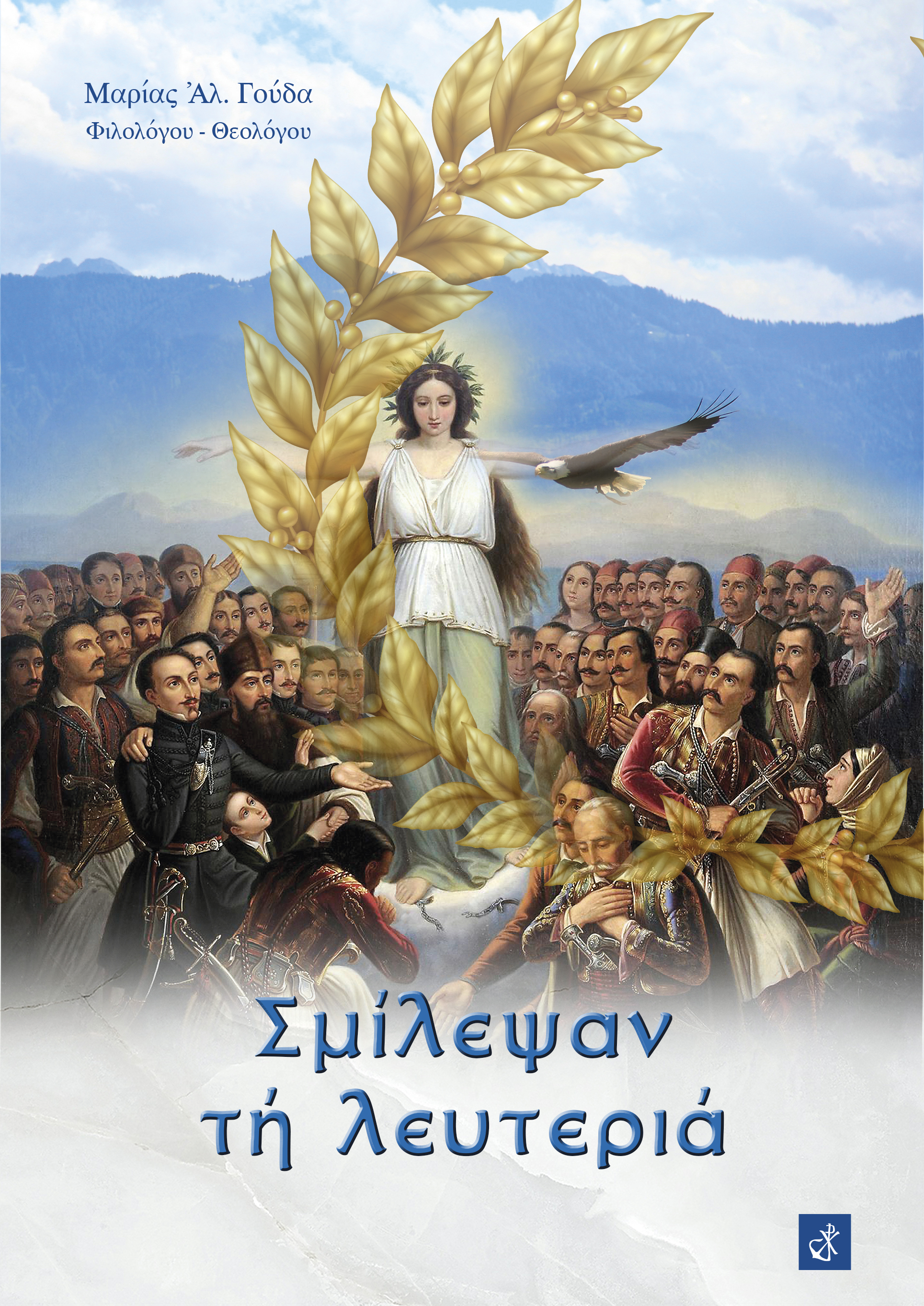
Σμίλεψαν τή λευτεριά
Μαρίας Ἀλ. Γούδα, Φιλολόγου - Θεολόγου
Πρόσωπα καί γεγονότα ἀπό τήν πρώτη ἅλωση τῆς Κωνσταντινούπολης μέχρι καί τήν ἵδρυση τοῦ ἑλληνικοῦ Κράτους.
Ἡρωικές μορφές πού μέ τίς σπάνιες ἀρετές τους συγκινοῦν καί ἐμπνέουν.
Ζητῆστε το στό Βιβλιοπωλεῖο μας "Ἀπολύτρωσις", 2310 274518
ἤ μπεῖτε στό ἠλεκτρονικό μας βιβλιοπωλεῖο http://books.apolytrosis.gr/el/
THE “LITURGY OF THE FAITHFUL” (E)
1. THE PRAYERS OF THE FAITHFUL
1d. “Defilement of Flesh and Spirit”
Before the Great Entrance, the priest recites the second prayer in which he asks God to cleanse our souls and bodies “from defilement of flesh and spirit”. But what is this defilement?
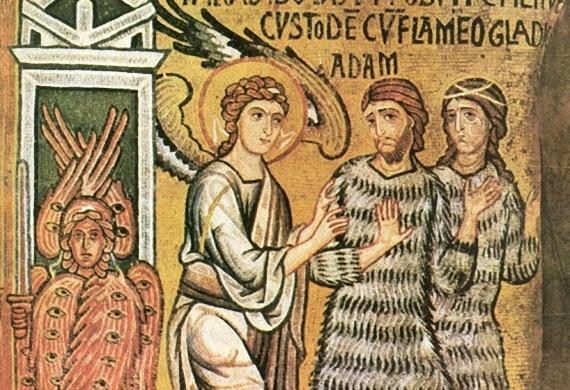 According to the Bible, there was a time when the first man lived in paradise. There, he enjoyed the blessings of the natural creation with a pure heart. He was clean from sin. There was no infection. Everything was pure. But when man did not obey to God’s commandment and sinned, his sin like an invisible virus attacked his body and spirit and a horrible pollution started. Sin makes man unclean before God.
According to the Bible, there was a time when the first man lived in paradise. There, he enjoyed the blessings of the natural creation with a pure heart. He was clean from sin. There was no infection. Everything was pure. But when man did not obey to God’s commandment and sinned, his sin like an invisible virus attacked his body and spirit and a horrible pollution started. Sin makes man unclean before God.
First his soul was infected by pride and selfishness. This infection attacked the body which became the instrument of the soul in various sins. A soul full of corruption gives orders to the body to execute them. A man uses his tongue to tell lies, gossip, slander, filth and he bears false witness. With his eyes he sees shameful spectacles. With his ears he hears corrupted words. With his hands he steals and kills. With his legs he runs to sinful places. In general, all the members of his body work for sins he is ashamed to even mention.
St. John Chrysostom observes that he who commits carnal sins feels that his body is dirty and wants to wash himself immediately with plenty of water. But a thousand baths, showers and waterfalls can’t purify him. Corporal infection has progressed into the very least of the fibers and cells of his body.
But soul can sin without the body’s cooperation. It sins with evil wishes and cunning thoughts. It sins in the secret and unseen depths of the inner world, where man’s eye can’t see. He might be in church, he might hear holy chants, the Gospel and sermon but if he is not careful, his thoughts will slide away and go to sinful persons and acts. The body which is in the church remains clean but not the soul.
This is the “defilement of flesh and spirit” which St. Paul the Apostle asks us to avoid: “let us cleanse ourselves from all filthiness of the flesh and spirit, perfecting holiness in the fear of God” (2 Cor 7:1). The priest asks God to purify him and the faithful. So, being clean in body and soul to participate in the Holy Sacraments and be made worthy to enter the heavenly Kingdom.
THE “LITURGY OF THE FAITHFUL” (D)
1. THE PRAYERS OF THE FAITHFUL
1c. “Now and forever and to the ages of ages”
 After the first petition of the faithful, the priest continues: “now and forever and to the ages of ages”. Time is divided in the past, the present and the future.
After the first petition of the faithful, the priest continues: “now and forever and to the ages of ages”. Time is divided in the past, the present and the future.
If we extend our gaze into the past ages, when God’s voice was heard: “Let there be Light” (Gen 1:3) we get some idea of the past. In comparison to the entire past, we are like a drop in the ocean. Where have we been a thousand of years before? Only in God’s mind. When people think about their past full of small and big sins are disturbed by their memories and have no peace. With various means they try to forget. But we can travel back in time and clear all the iniquities of our life through sincere repentance. For those who repent, a pit is opened up and all their sins are buried there. Prophet David sings sweetly: “Blessed is he whose transgression is forgiven, whose sin is covered”. Ps 31 (32):1.
Where will we be after a thousand of years? In God’s hands. “For in him we live, and move, and have our being” (Acts 17:28). There are thoughts about our future. What is going to happen to me? Will I be healthy? I might face sorrows, misfortunes, obstacles in my personal or family life. These thoughts about an unknown future fill our souls with uneasiness, anxiety and impatience. Only our Lord Jesus Christ can save us from this terrible condition. He gives us the means for our salvation. All these disappear with another gift called “hope”. A hope not based on persons or things of this world, but on the solid unshakable rock, our Lord Jesus Christ. Blessed and fortunate are those who hope in Christ, the only real hope in the world.
We must also pay attention to the “now”, that is, every moment of our life, because it has great importance. Unfortunately, the majority of the people leave the “now” unexploited. A duty exists for every moment and we are called to do something, no matter how small it appears. What is a glass of water worth which someone offers to a thirsty man? Yet, our Lord said that even this small offering of the moment will not remain unrewarded (see Mt 10:42). Our life is the sum of moments, so we can guess the value every moment has. Therefore, we should perform our activity and work honestly and willingly.
Throughout our life, from childhood until death, it is necessary to hymn and glorify God. The Holy Trinity, the Father, the Son and the Holy Spirit, will never cease to be hymned in all ages. Now and always and into the eternity they will be glorified, honoured and worshipped. Not only during the Divine Liturgy, but every hour and every moment it is necessary to honour and glorify God. How? By sanctifying every moment of our life, by performing our Christian duties. So, every moment will become a golden coin with the icon of Christ depicted on it.
FOR A BLESSED GREAT LENT!
Translation from the article:
Στεργίου Ν. Σάκκου, Γιά μιά εὐλογημένη Μ. Σαρακοστή, περιοδ. "Ἀπολύτρωσις".
(Stergios N. Sakkos, University Professor [Read CV])
March is usually marked by the period of Lent. The Church opens before us the “stadium of virtues”. At the same time, it undertakes the role of an experienced trainer who is responsible for the athletes in the spiritual realm. Showing total respect towards our freedom, it announces the beginning of the “race”: “Enter those of you who are willing to fight!”
From the numerous spiritual “sports events”, available to us during Lent, I would like to underline two: abstinence and humility. Of course, they sound strange in our time which is dominated by self-indulgence and arrogance. Convenience, in a society of overconsumption, abolished ascetic life. The main purpose and vision in our life seems to be just enjoying ourselves. On the other hand, our selfishness abhors any sense of humility.
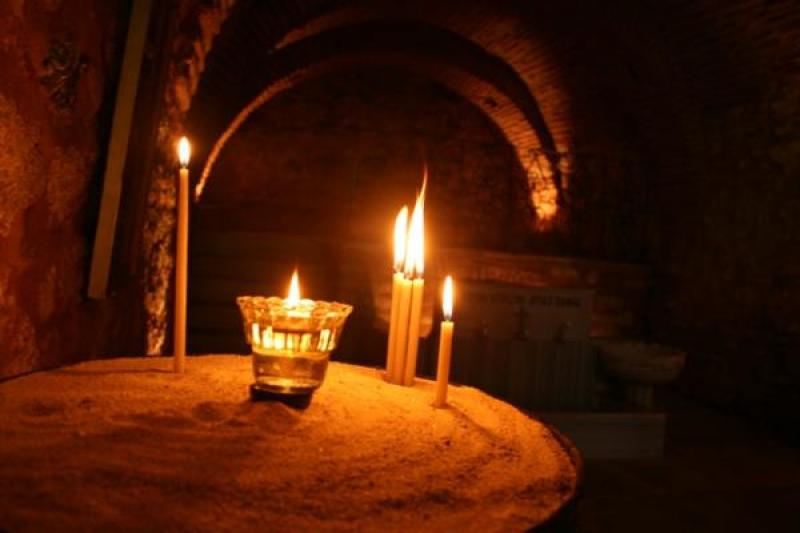 However, abstinence and humility or fasting and confession – as experienced in the Orthodox Church – are the two authentic acts of piety. Today, in our faith, everything has been simplified yet two things remain challenging: genuine fasting and sincere confession. The former has an impact on the body, not in order to exhaust or harm it but to renew it. The latter humbles the soul in order to recover its divine glory. It eradicates selfishness and arrogance which deviously dominate our life. When we participate voluntarily and with honesty in these two spiritual “events”, our life is marked by the sign of the Cross. It transforms us into authentic disciples, following the example of the crucified Lord, Jesus Christ.
However, abstinence and humility or fasting and confession – as experienced in the Orthodox Church – are the two authentic acts of piety. Today, in our faith, everything has been simplified yet two things remain challenging: genuine fasting and sincere confession. The former has an impact on the body, not in order to exhaust or harm it but to renew it. The latter humbles the soul in order to recover its divine glory. It eradicates selfishness and arrogance which deviously dominate our life. When we participate voluntarily and with honesty in these two spiritual “events”, our life is marked by the sign of the Cross. It transforms us into authentic disciples, following the example of the crucified Lord, Jesus Christ.
It is true, of course, that both abstinence and humility demand the transcension of our ego. Without doubt, the entire life of the faithful is a way of transcendence. The believer overcomes his personal will in order to obey God’s will. Without neglecting the present life, the believer transcends it to embrace “eternity”, as the Church is called.
What is impressive though, is that whoever makes eternity his priority, makes the most of the present life as well. This is because our real interest lies in what God’s law prescribes. Especially concerning fasting and confession, I could wholeheartedly recommend it as what today’s people definitely need. At the time of Saint Vasilios, medicine admitted that fasting was the foundation of a healthy lifestyle. What is more, the wisdom of our Fathers attributed human harmony to humility and sincere confession. Nowadays, these benefits are obvious from the other side, too. Heart disease, strokes and so many other diseases as a result of self-indulgence, stress, anxiety and all sorts of addictions seem like an epidemic. This is a very serious issue that forces us to admit that if we were more restrained and ascetic, if we were more honest with ourselves and God, we would be healthier both physically and mentally.
Indeed, our Church has designed a life chart for its members, so they can benefit not only in eternity but in the present life as well. Fasting and confession help people improve themselves and be purified both as individuals and as members of a social group. Fasting, abstaining from certain types of food and from vices and desires, is described by St. Chrysostom as the “mother of well-being”. It helps our body detox offering physical strength. It purifies our soul by turning our mind to God and stimulates our love, since it is connected to almsgiving/charity. “Let’s fast in order to be charitable” is the slogan of the Church. Confession helps people to make peace with themselves, restores their relationship with other people and allows them to enjoy God’s friendship and love. St. Chrysostom urges us “not to feel ashamed to confess our sins, since confession is a powerful force”.
Especially, the period of Lent becomes a guide to the paths of ascetic life and humility. During Lent the Orthodox Church suggests a series of transcendental spiritual exercises, which are similar to that of a pole used by a pole-vaulting athlete, in order to win. Will we dare such a transcendence of our ego? Certainly, this is the only way that safely leads to the resurrection.
Copyright © 2021 by Orthodox Christian Association «ΧΡΙΣΤΙΑΝΙΚΗ ΕΛΠΙΣ» ΟΡΘΟΔΟΞΗ ΑΔΕΛΦΟΤΗΤΑ. Used by permission. All rights reserved.
